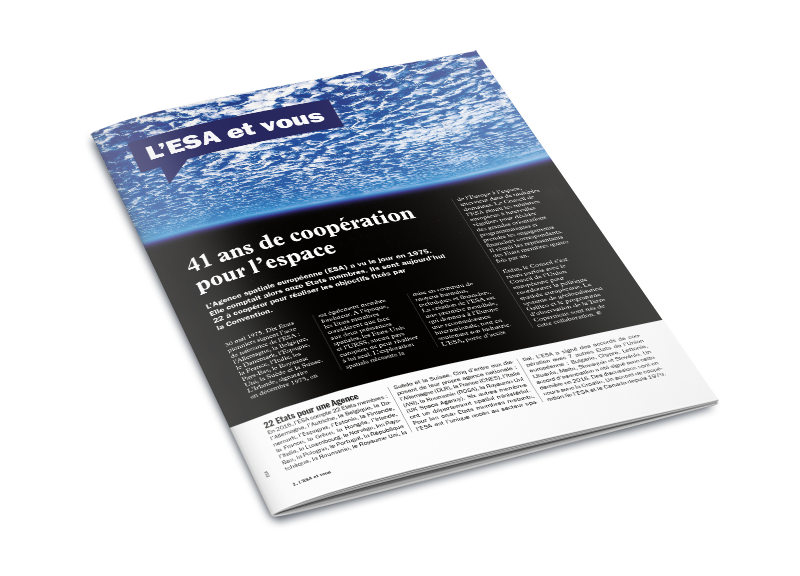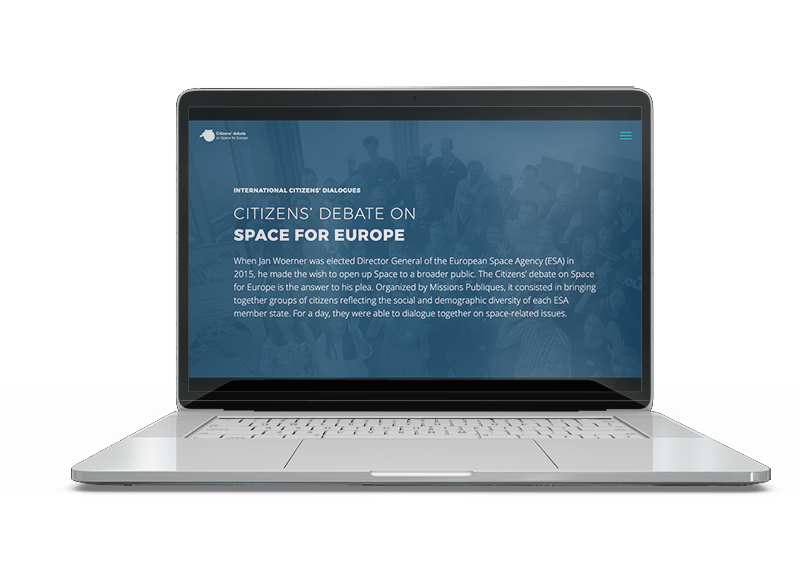CONTEXT AND GOALS
When Jan Wörner took on the role of Director General of the ESA in 2015, he set out a new strategy for the agency, with the aim of opening it up to all the stakeholders involved in the sector and to European citizens. The Agency thus decided to hold a debate ahead of a meeting of the ESA’s “ministerial board” at the end of 2016, the main governance event for the Agency for a period of four years.
“I expressed the wish to boost dialogue with all stakeholders and to open up space to a broader public. This citizens’ debate translated my intention into practice.
Johann-Dietrich Wörner
Former Director General of the ESA
PROCEDURE
Mission Publique’s task was to coordinate the methodology and overall strategy of the debates. Firstly, that meant working with an expert committee to define the ESA’s expectations and the topics on which citizens’ input was required. We then drafted a protocol on debate facilitation and making space-related information more accessible.
Next, Missions Publiques brought together and trained partners from the 22 EU countries that are members of the ESA and provided them with a shared protocol and training materials.
During the final stage, we collected all the results and drafted a summary to send to the ESA for presentation at the member countries’ ministerial board meeting at the end of 2016; we ran seminars at the ESA where the results were analyzed and taken on-board; and we publicized those results (in videos, magazines and a 17-language website).
OUR ADDED VALUE
This debate helped open up the Agency to dialogue with non-expert European citizens. The results collected showed the trust that people have in the ESA and the existence of a shared opinion on the future of space in Europe.
The coalition of national partners brought together organizations from vastly different backgrounds (universities, associations, research centers) and enriched the various groups working with the Agency.
Finally, the materials created for information and for the debate, which were published online for free download, has helped interested clubs, associations, teachers, and NGOs to organize local debates on the same bases.
OUTCOMES
The European Citizens’ Debate on Space has helped the ESA and its partners (space agencies and centers in the member countries) to develop a culture of citizen participation and to train their staff on this issue.
It has allowed the Agency to see how interested citizens are in space activities and in fundamental research. On the back of the project’s success, the ESA asked Missions Publiques to set up a website, European Space Talks, where the Agency can share space-related events with the general public.
KEY FIGURES
DELIVERABLES
- An exhaustive analysis of the results and synthesis for the ESA ministerial board meeting in November 2016.
- Videos and magazines presenting the results.
- Website presenting the results and the 17-language debate.






